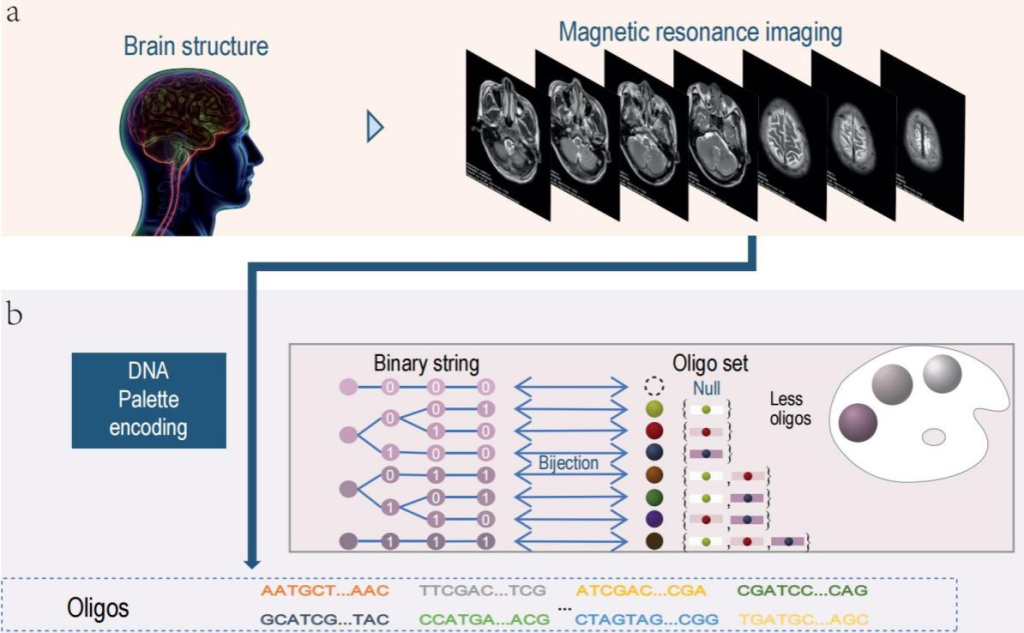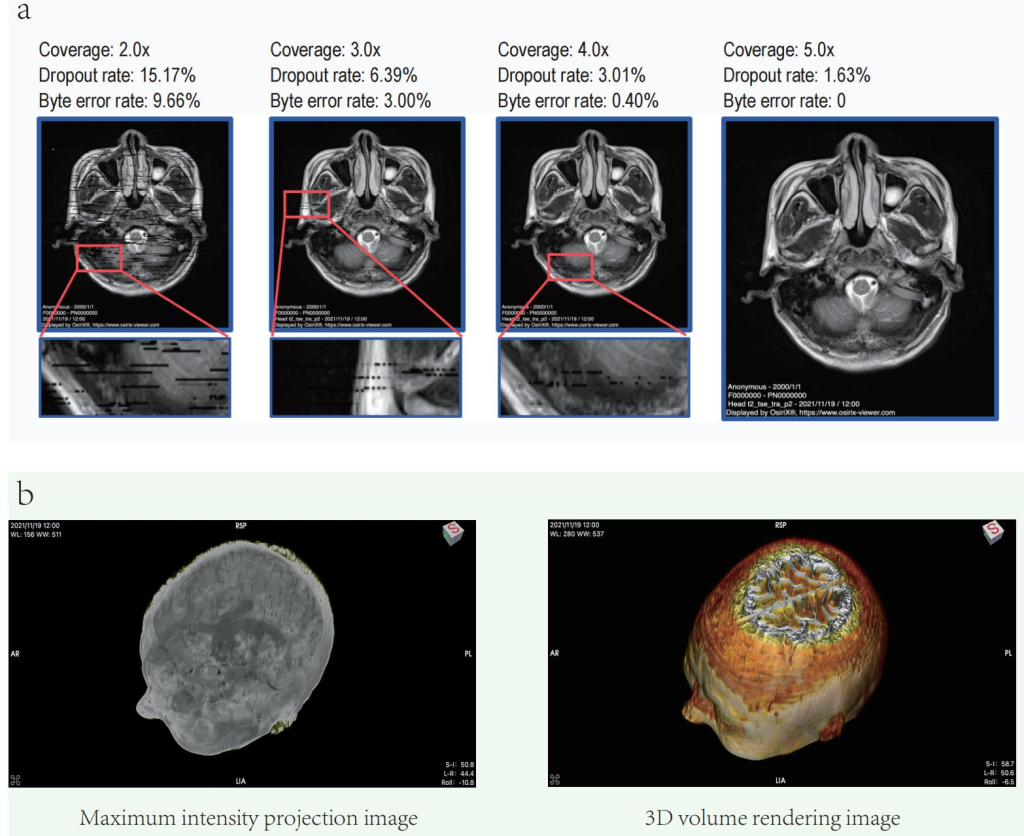Scientists at Tianjin University have made a significant breakthrough in the field of data storage by developing a method to encode brain MRI data into DNA.
This innovative approach, called the “DNA Palette,” was developed in collaboration with Tianjin Huanhu Hospital and represents a new frontier in medical data storage technologies.

Brain MRI scans generate vast amounts of data essential for clinical diagnosis, surgical planning, and treatment evaluation.
However, storing such large volumes of data over long periods poses significant challenges, especially for conditions like juvenile Parkinson, epilepsy, and neurogenetic disorders which need lifelong data accumulation and analysis.

Traditional storage media struggle to meet these demands.
The team at Tianjin University addressed this challenge by exploring the potential of DNA as a storage medium.
Known for its exceptional stability and density, DNA has emerged as a promising candidate for long-term data storage.
Using the DNA Palette coding scheme, the researchers successfully encoded 11.28 megabytes of brain MRI data into approximately 250,000 DNA sequences.
This corresponds to an impressive data density of 2.39 bits per base, showcasing DNA’s capability to store massive amounts of data compactly and efficiently.
The encoded sequences were stored in dry powder form, weighing a mere 3 micrograms, yet capable of supporting over 300 reads under current technical standards.
The DNA Palette was specifically designed to handle the unique characteristics of MRI data, ensuring high information density, broad applicability, and data recovery even at low sequencing coverage rates.
Experimental performance demonstrated the capability to reconstruct MRI pixel data accurately at different sequencing coverage levels, generating clear maximum intensity projection images and 3D volume rendering images from the decoded data.
These results underscore the potential of DNA-based data storage to maintain the integrity and quality of the MRI data over time.
This breakthrough, published in National Science Review, marks a crucial step toward the practical application of DNA data storage.
By offering a new, secure, and efficient pathway for storing large amounts of medical data, the DNA Palette paves the way for broader adoption of DNA-based storage technologies in the medical field.
The development of the DNA Palette is a testament to the innovative efforts at Tianjin University’s Frontiers Science Center for Synthetic Biology.
Their work not only addresses critical storage challenges but also accelerates the possibilities for future medical and biological data storage solutions.
